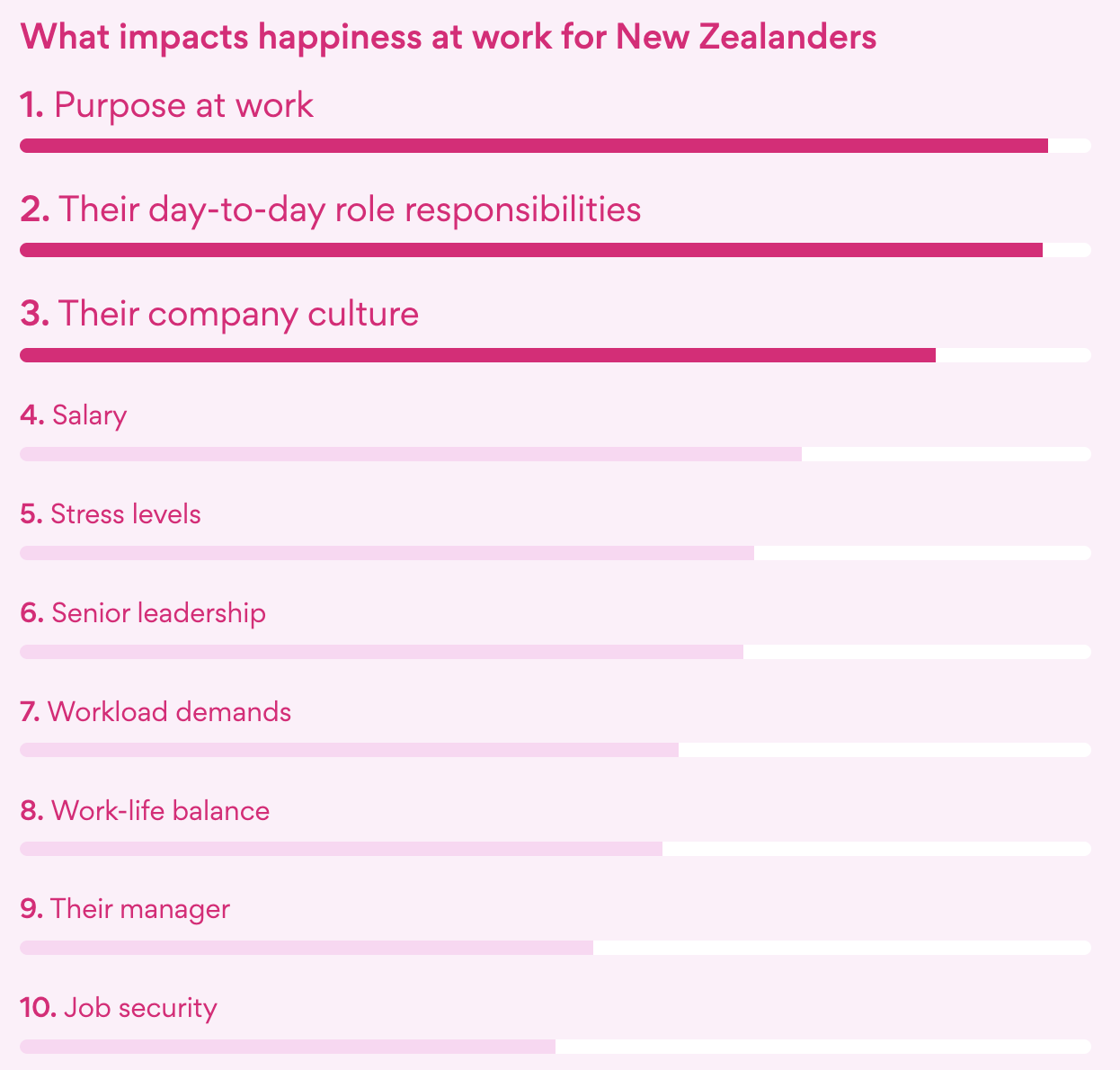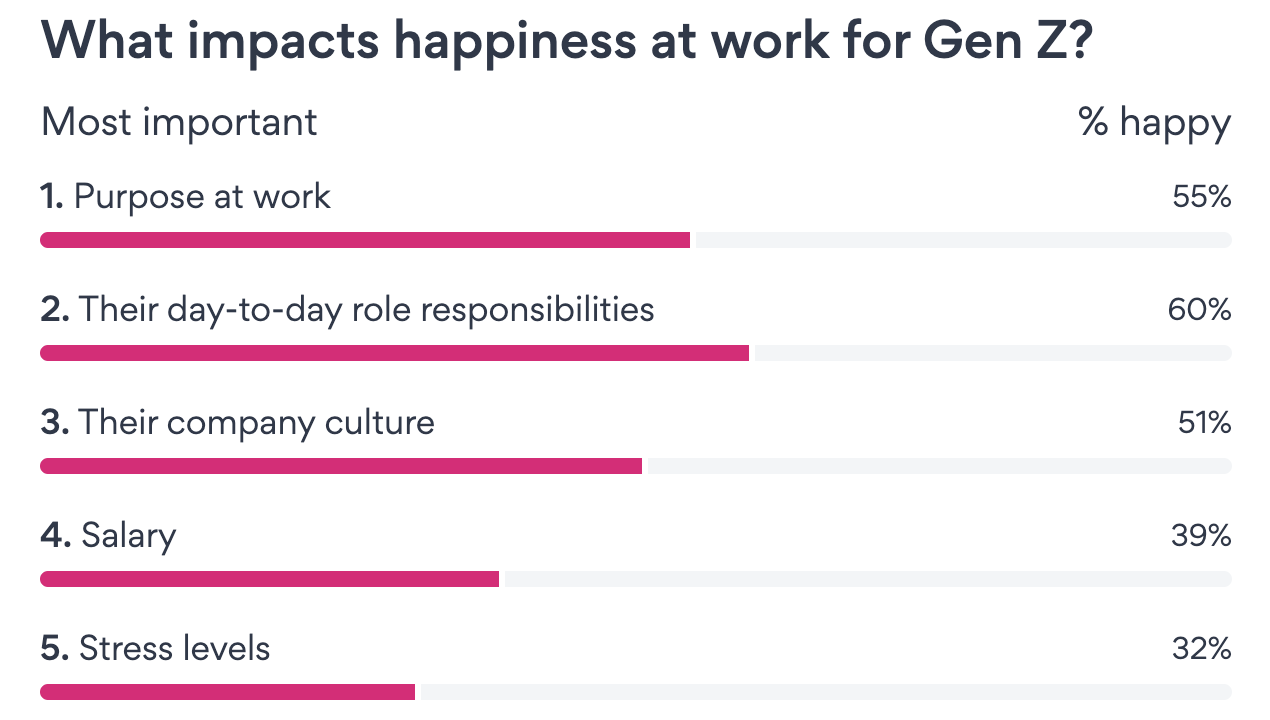
New report reveals top factors contributing to employees' happiness

More than three in five employees in New Zealand are happy at work, according to a new report from SEEK NZ, which has found the factors contributing to employee happiness.
The Workplace Happiness Index, based on data from over 1,000 New Zealanders, found that 62% of New Zealanders consider themselves happy at work.
According to the survey, the most important contributors to workplace happiness for Kiwis include having a sense of purpose, day-to-day responsibilities, and company culture.
These factors ranked higher than salary and stress levels, as well as flexible working arrangements, which have been previously dubbed a crucial factor in employee satisfaction.
"Amid today's challenging economic climate, it's no surprise that salary and stress levels are top concerns for Kiwis when it comes to workplace happiness," said Rob Clark, SEEK NZ Country Manager, in a statement.
"However, having a sense of purpose at work, day-to-day responsibilities, and company culture lead the charge suggesting it's the type of work we do that is the biggest driver of happiness at work."

Source: SEEK NZ
According to Clark, employees who are content in their roles "are less inclined to look for new opportunities and are more likely to contribute above and beyond in their work."
"While not every role may align perfectly with our preferences at each stage of life, being happy at work can have a positive impact on our overall health and well-being," he added.
Meanwhile, the report also revealed the generational differences in workplace happiness, with younger workers being less satisfied than their older counterparts.
Only 52% of Generation Z respondents reported being happy at work, compared to 69% of Generation X and 76% of Baby Boomers.
For Gen Zs, their day-to-day responsibilities are the top factor (60%) that influences their happiness, followed by purpose at work (55%) and company culture (51%).

Source: SEEK NZ
"The Workplace Happiness Index has revealed the gap between what workers identify as important for their happiness and their satisfaction with those factors. By uncovering this disconnect, we can pinpoint the key areas that need attention to enhance workplace happiness," Clark said.
"For the younger generations, who are set to shape the future of New Zealand's workforce, addressing these areas is crucial for driving meaningful improvements in workplace satisfaction across the country."